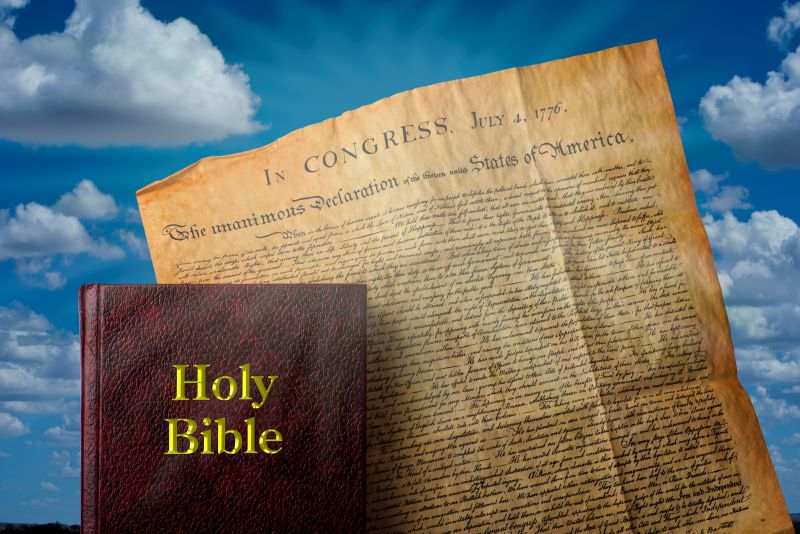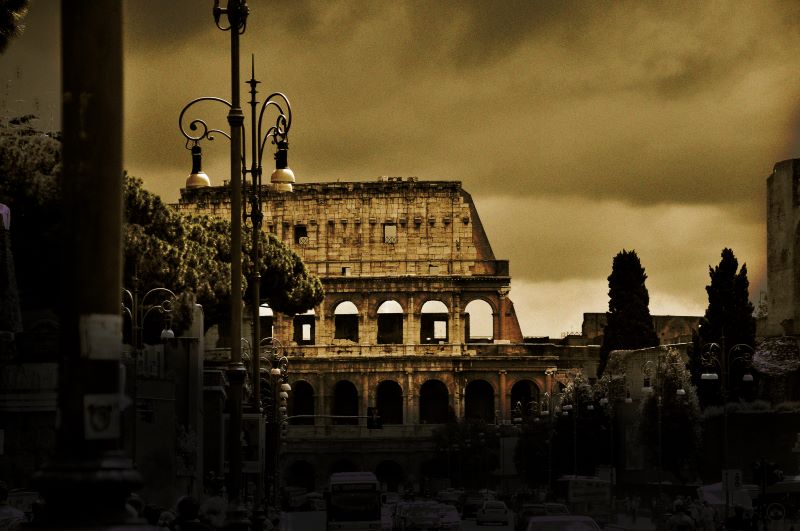No Greater Love
Sign up for a six month free
trial of The Stand Magazine!
No Greater Love
Christian sacrifice needed in midst of corruption
The following originally appeared in the September 2002 issue of AFA Journal.
For many within the Christian community, the sad state of our culture is a testimony to just how rapidly a nation can degenerate spiritually. Within the space of one generation, America has almost completely abandoned its character as a God-fearing nation that honored traditional notions of marriage, family, and sexuality.
That such things can happen so quickly should not be a surprise to Christians who base their worldview on the Bible. A cursory examination of the Book of Judges, for example, shows that the spiritual cycle of national apostasy, judgment, repentance, and restoration can happen in the historical equivalent of a blink of the eye.
One of the most compelling examples of rapid moral and religious decay occurs in Exodus 32 (NASB). The Lord had finished giving to Moses the religious and civil blueprint for the new Hebrew nation. Almost in the next breath, God told His obedient servant, “Go down at once, for your people, whom you have brought up from the land of Egypt, have corrupted themselves” (vs. 7).
It had happened so very quickly. Rather than waiting patiently for Moses’ return from the fiery glory of that holy mountaintop, Scripture says “the people sat down to eat and drink, and rose up to play” (vs. 6). When confronted, Aaron’s excuse was that “you [Moses] know the people yourself, that they are prone to evil” (vs. 22).
The culture of a people directs their habits and lifestyle, but it is the religious beliefs that direct the culture. The sudden swerve of the now hedonistic Hebrew people came in answer to a sudden religious shift – away from the Lord God who had saved them to a mute, unseeing idol made of gold.
Embracing or rejecting culture?
Moses was cut from a different cloth than his fellow Hebrews, and he presents a challenge for modern Christians concerning the way they interact with their own corrupt culture.
Some believers behave as if there are only two ways to deal with culture: embrace it or reject it. To embrace culture obviously means to accept it as legitimate, but if the culture is degenerate, this amounts to as much a denial of Christ as the Hebrews’ worship of the golden calf entailed a rejection of Jehovah.
While Moses certainly shared in the fallen nature of his countrymen, he did not share in their decision to worship a false god. In this respect, Moses rejected the idolatrous cult that had erupted during his absence.
That idolatry ignited the wrath of God, as He told Moses: “Now then let Me alone, that My anger may burn against them, and that I may destroy them …” (vs.10).
In fact, the holy prophet shared God’s opinion of the Hebrews’ apostasy, for it says, “Moses’ anger burned” (vs. 19). He had spent time in the presence of a holy God, and was neither fooled by the trappings of false religion, nor seduced by the hedonism of the infant nation’s brand new culture of pleasure.
This rejection of the great evil of his people led Moses to resist the outward expression of sinfulness he saw around him, as he physically removed the offending calf of gold by having the idol burned with fire and then ground into dust.
In our own day this approach often leads believers to actively participate in resisting the outward manifestations of wickedness in their own culture. Perhaps a Christian might boycott a company that sponsors a perverted TV program or vote for a political candidate who promises to limit abortion.
Of course, the outward expression of sin is hardly the main issue, and Moses perceived that there was a deeper problem that lay beneath the revelry and corruption surrounding the golden calf. The Hebrews’ devotion to their God was not a bedrock upon which they could stand when it seemed as if the Lord had delayed; it was a thin shelf of brittle shale that crumbled away, revealing the awful truth about each one of us: our fallen nature is “prone to evil” (vs. 22).
So the holy prophet thundered a demand for repentance, crying aloud, “Whoever is for the Lord, come to me!” (vs. 26) It is certainly a message that needs to sound forth from our own pulpits today.
The problem, of course, was – and is – that the Law cannot change the sinful heart of those “prone to sin.”
The intercession of the uncorrupted
Thus we see Moses interceding with God to stop the obliteration of the Hebrew children. It is a stunning, jaw-dropping moment in Scripture, when mere flesh and blood is allowed to stay the hand of judgment.
Moses seemed to intuitively understand that something more was needed than pure Law, for his intercession called upon the mercy of God to forestall the execution of Divine retribution.
It is a revelation that is found throughout Scripture, and of course, most fully expressed in the mercy extended to humanity through the death of Christ. As He Himself told His disciples, “Greater love has no one than this, that one lay down his life for his friends,” (John 15:13).
The intercession of Moses represents a third Christian approach to interacting with the culture, for intercession is the call of every believer. It is a mediatorial role in which the Christian stands before men on behalf of God (2 Cor. 5:20) and before God on behalf of men (1 Tim. 2:1). The concept may entail prayer, but it may also encompass the preaching of the gospel or the loving of one’s enemies, or even the sacrifice of oneself.
This sacrificial love of the Christian for his fellow man demands that he grasp the dying by the hand in a fervent embrace that refuses to surrender the wicked to their fate. It is doing for others what Christ did for us. In fact, the New Testament states emphatically that such love fulfills the law of God – at least that part which is directed horizontally toward others around us (Rom. 13:10; Jas. 2:8).
This love is what makes the intercession of Moses so breathtaking. He refused to let go of his countrymen, even to the point of being willing to share in their judgment. He cried out to God, “But now, if You will, forgive their sin—and if not, please blot me out from Your book which You have written!” (Exodus 32:32)
It wasn’t as if Moses had nothing to look forward to if God had annihilated the Hebrew people, for God had promised that He would start all over with Moses after He had dispatched the faithless idolaters: “I will make of you a great nation,” He’d said (vs. 10).
However, much as he had done earlier, when he forsook a life of ease in Egypt that he might identify with his Hebrew brethren (Hebrews 11:24ff), Moses chose to grasp the hand of his people and not release them to their doom. The Hebrews, whether or not they realized it at the time, had at least one man among them who would reject the hedonistic side of his own nature in order to fulfill the will of God, preferring the salvation of others to the realization of personal happiness.
This concept is strange to our American culture, awash as it is in the individualistic pursuit of personal pleasure. For the Christian, however, individualism can only be sanctified by the love of one’s neighbor, a pressing sense that those who do not worship the golden calf are required to intercede for those who do.
God will hold His own people responsible if they fail to seize the hand of the one sinking down in his own corruption. To love one’s neighbor as oneself demands nothing less.

Sign up for a free six-month trial of
The Stand Magazine!
Sign up for free to receive notable blogs delivered to your email weekly.


















